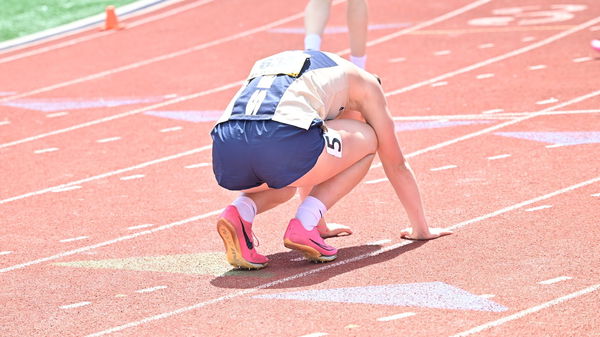

“The rug has been pulled from under them,” a track and field fan lamented after hearing the disheartening news from McGill University in Montreal. On November 24, the McGill Athletics Department announced it would be cutting the university’s 125-year-old men’s and women’s track and field programs, along with 23 other varsity teams and clubs. Naturally, the imminent question is why?
Watch What’s Trending Now!
These programs, which span 15 sports, including women’s rugby and badminton, will be discontinued with effect from the 2026–27 school year. For many athletes, the news popped out of nowhere.
“We felt largely like it was out of the blue. We don’t really understand why it happened,” said track and field co-captain Rebecca Warcholak. Like Warcholak, the sentiments resonate with other athletes, leaving many searching for answers.
ADVERTISEMENT
Justin Mazzella, another track and field captain, called the decision “a shock” that hit hard. “It really hurts such a big part of our lives,” he said, reflecting the frustration shared by many who feel they were poorly consulted. And it was not just the athletes who were confused; coaches were also taken aback.

ADVERTISEMENT
Allan Swetman, the coach of the McGill Martlets women’s rugby team, referred to it as a process that blindsided those involved. “We don’t really have much information… just disappointed and confused is the main thing,” he said. This is primarily because of a lack of transparency regarding who made the decisions.
ADVERTISEMENT
Will Sanders, a track and field athlete, said the cuts hit at the heart of why many chose McGill.
“I came to McGill because I was promised an institution that offered athletic and academic excellence…. For a lot for us, this is everything,” he said. But why did the university have to make such a difficult decision?
To explain why McGill University decided to reduce the number of 25 varsity teams and clubs, it all boils down to the lack of space, tight budgets, and recurring staffing issues. To evaluate the performance of its athletics programs and their feasibility at this level, the university undertook an internal audit in 2024 and an external audit in 2025.
ADVERTISEMENT
This discovery showed that the resources available to manage such a large number of teams were overstretched, and it became more and more difficult to sustain the high standards of coaching, facilities, and support that McGill strives to achieve. Perry Karnofsky, director of wellness programs and facility operations, and Daniel Methot, varsity sport program director, explained that the university found itself unable to manage or sustain the same number of activities and continue to offer the quality of excellence that is required of McGill.
Financial constraints play a major role in the cuts. Over the past years, there has been an observable decline in the number of international students studying in Quebec, which has been a major funding source to many programs, and the governmental support has only risen by a small margin. With these limitations, McGill resorted to the new RSEQ evaluation model to evaluate its varsity teams, considering the competitiveness, potential to recruit, and resources.
The result was a ripple effect of cuts that is showing everywhere. Teams were to be cut, one at a time: track and field, women’s rugby, badminton, fencing, Nordic ski, sailing, figure skating, golf, squash, tennis, baseball, and volleyball were also to be cut. The men’s and women’s cross country programs were the only ones that were exempted, leaving thousands of athletes with programs that had made their university experience so meaningful, stranded.
ADVERTISEMENT
For the students, however, this was far from the end of the story. They aren’t giving up without a fight.
The fight to save McGill track and field
On November 24, the McGill track and field team launched a petition to challenge the program cuts. And it is quickly gathering 5,700 signatures. Elite-level athletes gave their attention to the movement as it highlighted the importance of university track and field programs in developing future talent. This flood of support provided the fight with greater momentum and highlighted the larger effect of the cuts. Even Olympians have commented.
The petition was signed by Canadian track and field Olympian Mariam Abdul-Rashid, who said, “Racing against the college girls at McGill in high school was the push I needed to run fast times, earn a spot on national teams, and make the Olympic dream feel possible. Olympians are made in Canadian university systems. Supporting Canadian athletes matters!” His statement strengthened the cause further.
Canadian Running columnist Alex Hutchinson also criticized the cuts. “We all understand that funding is a perennial challenge, and English universities in Quebec are under particular pressure right now. If the teams funding was downgraded from varsity to club level…But to …eliminate the opportunity for students to compete in track and field is ridiculous,” he said.
McGill may have declared their track and field, and certain other teams, out of the varsity sports henceforth. However, the students are not giving up. They move with more purpose, attempting to continue competing despite bearing the cost of the team. What is your opinion of what will happen to these students next? Comment below and let us know.
ADVERTISEMENT
ADVERTISEMENT
ADVERTISEMENT

